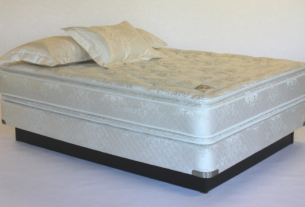The mold removal process in the heartland is an essential part of home repair, as it can be a dangerous hazard to your health. You should know several things, such as how to isolate the problem, prevent it from spreading, and get your property back to its original state.
Mold abatement vs. mold remediation
When you have mold issues in your home, it’s essential to remove the mold, identify the cause of the decay, and take preventive measures. There are many different methods for preventing mold growth, but if you need more clarification, it’s best to hire a mold removal Hartland professional.
Mold remediation is the process of containing, removing, and testing the mold to ensure that it is obliterated. Unlike mold removal, remediation requires extensive work on the home’s frame and structure. This includes building materials and drywall.
The most common types of mold are Aspergillus, Chaetomium, and Alternaria. While most are harmless, they can produce allergens and lead to asthma attacks. Therefore, it’s essential to treat the fungus before it spreads. A bleach solution may be all you need if you have a small mold. But if you’re dealing with a large infestation, hiring a mold removal Hartland professional is better.
Isolating the problem
Most people have at least one bathroom, and the moisture-laden air can be a breeding ground for mold and mildew. While there’s no way to avoid getting a wet bath, you can do your part to keep it out of your home. The most sanitary way to do this is to install exhaust fans in the shower. A mold removal Hartland professional can do the trick if you’re unwilling to do it yourself. Depending on the humidity in your area, consider installing a dehumidifier or two, particularly in the garage or basement.
One of the essential things is thoroughly inspecting your newfound moisture-laden abode. For the phlegmatic among you, you’ll need to seek the services of a reputable mold inspector. Thankfully, the likes of these professionals are on hand to handle all of your mold-related needs.
Keeping the spread of spores to a minimum
Molds are fungi that thrive in moist environments. They grow by hyphae, the roots of a standard plant, and spread through large surfaces by releasing spores. Spores can be found anywhere, on clothes, in the air, and in water.
The best way to keep mold spores from spreading is to limit moisture and prevent spores from germinating. In addition, a humidifier, dehumidifier, or cross breeze will help minimize the amount of water in the air.
If you are having problems with black mold in your home, you must ensure that the humidity is kept at the proper levels. Generally speaking, a humidity level of 60 percent is ideal. This helps prevent mold from spreading throughout your home.
Many different types of fungi may cause problems. Some can cause skin irritation, but some are toxic and can damage your respiratory tract. It is best to avoid these fungi at all costs.





